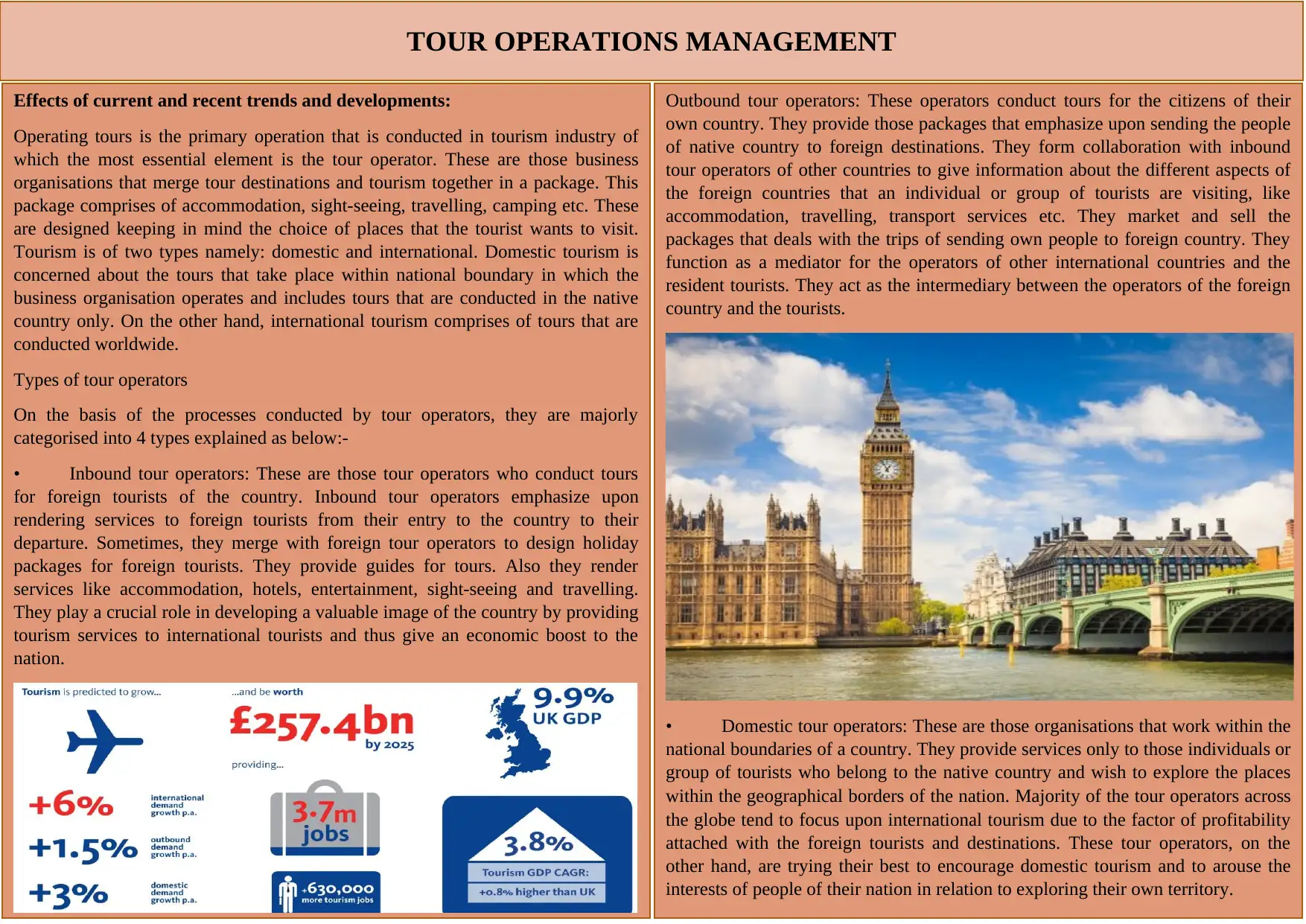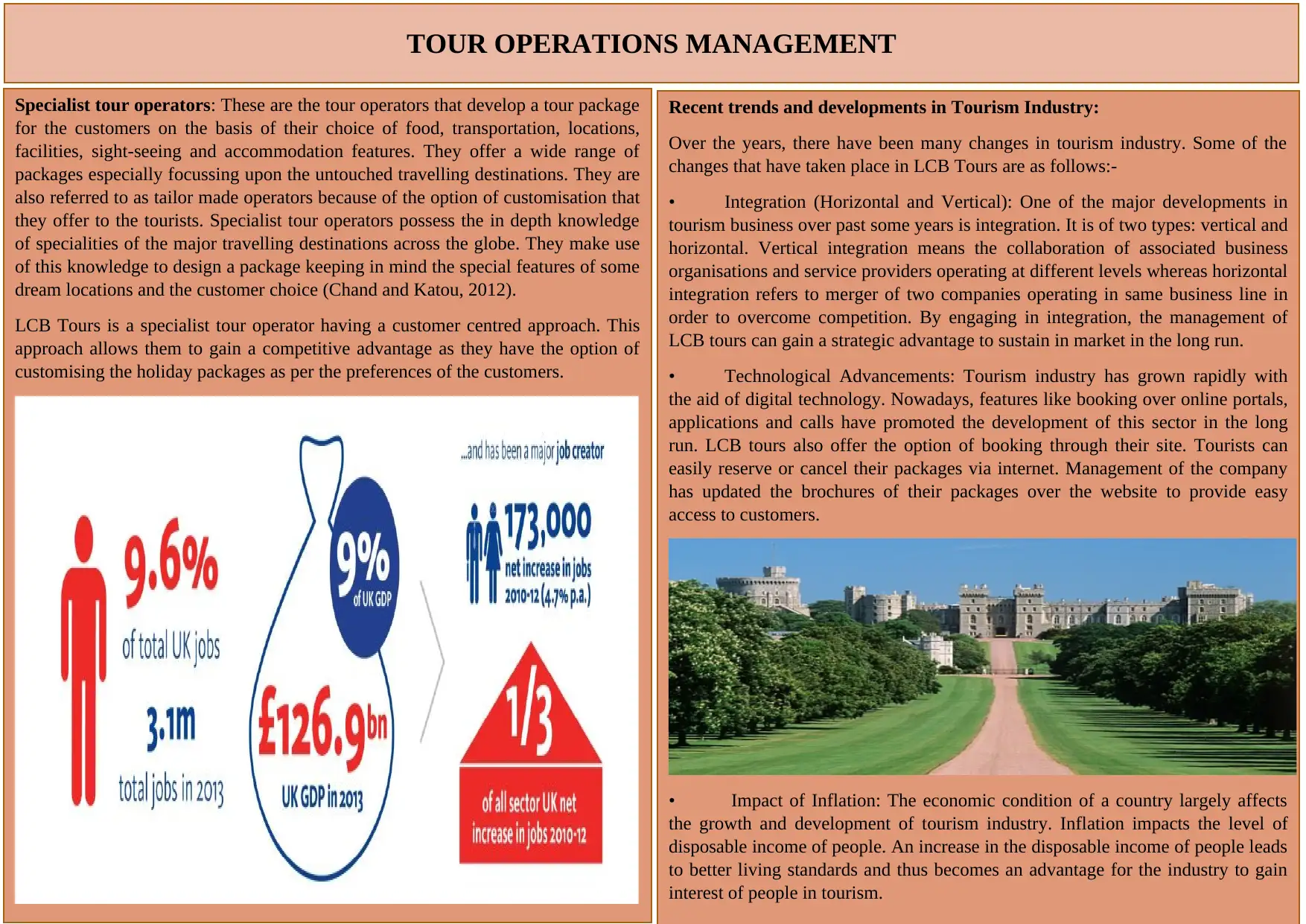Tour Operations Management: Trends and Developments at LCB Tours
VerifiedAdded on 2020/10/05
|2
|1906
|74
Report
AI Summary
This report provides a comprehensive analysis of tour operations management within the tourism industry, focusing on the operations of LCB Tours. It begins by defining and differentiating various types of tour operators, including inbound, outbound, domestic, and specialist operators, highlighting their roles and functions in the tourism ecosystem. The report then delves into the effects of current and recent trends and developments in the tourism sector, such as integration (both horizontal and vertical), technological advancements, and the impact of inflation on the industry. A significant portion of the report is dedicated to the analysis of LCB Tours, examining its approach as a specialist tour operator with a customer-centric focus, and how it adapts to the changing landscape of the tourism industry. The report also explores how the company leverages technological advancements like online booking and website updates to enhance customer experience. The report concludes by highlighting the importance of understanding these factors to make strategic decisions and sustain competitiveness in the market.
1 out of 2







![[object Object]](/_next/static/media/star-bottom.7253800d.svg)